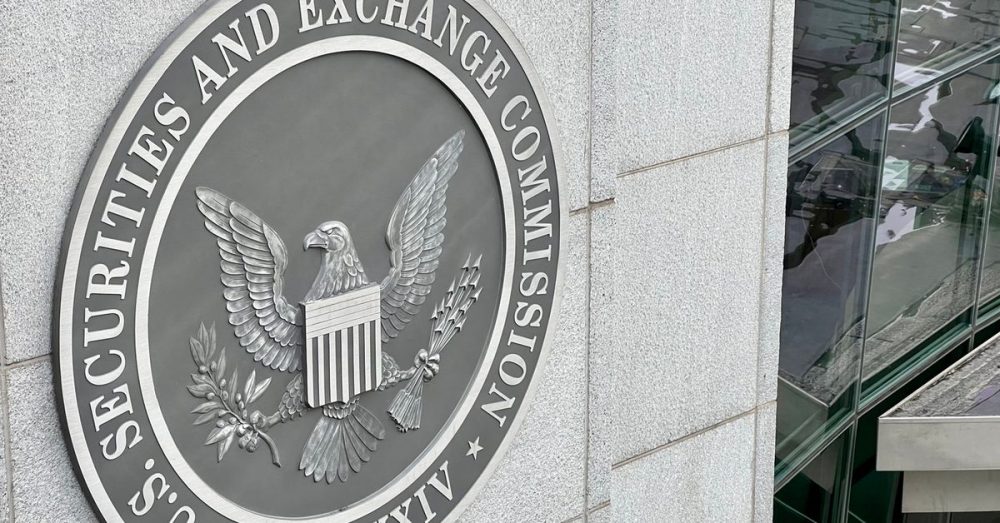The U.S. Securities and Exchange Commission’s (SEC) warning shot last week that decentralized finance (DeFi) could be thrown into its expanding definition of what makes a securities exchange is the latest move to formalize what Chairman Gary Gensler has been saying: Crypto belongs in the securities world and will be regulated that way.
The crypto industry had long pleaded for specific rules or guidance from the SEC that would give digital-assets businesses certainty about how to comply or properly steer clear of the agency’s jurisdiction. The agency’s decision to explicitly fold DeFi into its proposal for a new exchange definition further underlines that the crypto financial movement won’t get tailored regulations. On the contrary, the agency is making targeted adjustments to its rules to ensure that crypto will be held to existing securities regulations.
“We see this new technology, and we’re not willing to make any adjustments to accommodate it,” SEC Commissioner Hester Peirce said Monday on CoinDesk TV, further detailing her criticism of the move last week that she opposed. “If you don’t look exactly like incumbent firms, then we’re just going to be fine with killing you off or driving you offshore or forcing you to turn yourself into a centralized entity.”
The latest maneuver, in which the agency voted 3-2 to reopen an existing proposal to widen how it defines operations that need to be regulated as securities exchanges, is aimed at bringing in new technologies that would now include DeFi. To comply with this and other SEC initiatives, crypto operations would have to decide whether to make fundamental changes – such as increased centralization – and some of those changes could threaten what’s different about its approach to money and investing.
“The SEC is simply seeking to ban DeFi protocols in America,” said Jason Gottlieb, a lawyer who handles crypto clients at Morrison Cohen in New York. “In doing so, the SEC is substituting its own opinions for Congress’s prerogative on a major question, central to the future of the American economy.”
Gottlieb said the change “would sweep decentralized software protocols into a regulatory framework that was not built for them, and with which they literally, technologically cannot comply.”
Gensler stuck to his customary message as the commission voted on the exchange definition proposal, which is now open to a 30-day comment period before the rule can be finalized in another vote.
“Investors in the crypto markets must receive the same time-tested protections that the securities laws provide in all other markets,” Gensler said.
His SEC has now mostly arrayed its pieces on the regulatory battlefield:
“Nothing about the crypto markets is incompatible with the securities laws,” Gensler said in testimony prepared for a Tuesday hearing of the House Financial Services Committee. The chairman is facing the Republican-majority committee for the first time this year and is expected to be grilled on his crypto positions, which frequently run afoul with GOP preferences.
“Calling yourself a DeFi platform, for instance, is not an excuse to defy the securities laws,” Gensler intends to tell the lawmakers.
At this stage, the SEC’s approach to crypto could probably only be steered in a different direction by legislation from Congress or developments in court cases, such as the outcome of its legal dispute with Ripple Labs over whether XRP was an unregistered security.
The latest enforcement action against exchange Bittrex on Monday – and a similar case last month against Beaxy – are putting into action Gensler’s rhetoric that today’s crypto exchanges are improperly trying to fulfill multiple (and sometimes conflicted) roles without registering. Gensler has often criticized crypto platforms for setting themselves up as exchanges, brokerages, custody operations and clearinghouses – each of which should properly be registered for federal oversight.
But DeFi proponents had hoped their decentralized approach would keep them out of such regulations by putting the transactions on a peer-to-peer level without companies acting as go-betweens. If the SEC approves a final version of its proposed exchange definition, calling the transactions “decentralized” isn’t enough.
“If pushed, there will be ways to innovate,” said Joshua Ashley Klayman, who heads the crypto practice at Linklaters in New York and said the industry is replete with “exceptionally smart people” who will find ways to continue. “It may not look the way it looks now, but I think the industry will continue to evolve.”
Commissioner Peirce, who has routinely been called “Crypto Mom” for her past support of the sector, said this latest move on DeFi marks a “very consequential moment.” Several of the questions she tried to ask the SEC’s legal team before the commission’s vote were met with uncertainty from the staff. The agency’s proposal didn’t define DeFi or say exactly how those transactions would fit into its rules, but SEC officials said such operations would be measured case-by-case against its standards.
Recommended for you:
- 4 Reasons Why US Lawmakers Shouldn’t Back Sen. Warren’s Latest Crypto Bill
- The Truth About Artificial Intelligence and Creativity
- ‘I Knew I Was Here to Stay’: Talking the Future of Web3 With David Bianchi
- Join the Most Important Conversation in Crypto and Web3 in Austin, Texas April 26-28
“At the end of the day, it’s going to be the enforcement division that will end up making those calls,” Peirce said.





